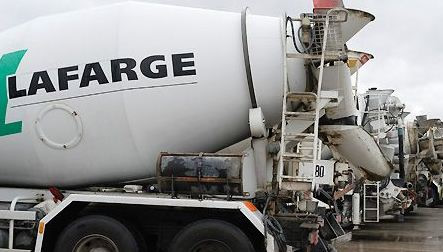Editorial Comment: Now play your part, pay bills for better services

The total write off of debts owed by householders, although not companies, to city councils, municipalities and other local authorities accumulated by June 30 this year, cannot and must not be seen as a precedent and people must now settle their bills as they arrive.
Those who owed money, and there were large numbers who had been paying bills and were clear of debt, were given a clean slate so they could start afresh, this time contributing their share to the common good instead of expecting others to subsidise them.
The monthly rates and water bills are not large for most people. They are affordable having been approved by the Local Government Ministry, which still retains the power to approve or adjust rates for high-density suburbs.
They become difficult to clear when allowed to accumulate, and eventually some families just reach the stage where they refuse to open bills because they know they are so far behind and see no hope of clearing the debts.
They should now grab the opportunity the Ministry gave them and start paying bills as they arrive.
The one main problem is water bills, with those charged more than the minimum often querying estimates, rather than actual amounts recorded on a read meter.
In this case, we think that a system can be worked out fast that requires the minimum fee, the one people who do not get any water at all still have to pay, to be paid plus a rational estimate from the user of what extra was actually used, subject to correction when a meter reader takes the reading.
In these cases the user should be required to take his own meter reading to the council office when paying the bill so this more rational estimate can be calculated.
We have urged the council before to take a leaf from Zesa’s book and start installing pre-paid water meters. Complaints about Zesa now revolve around the tariff, not around paying for what is not used and the weird formulas the utility used to employ to work out “estimates”.
And Zesa seems to be able to provide a much better service as a result.
There is another and diminishing problem, over refuse removal. Some people, probably most people, really hate paying for a service that does not happen.
Harare City Council is now usually collecting garbage on the correct date every week. But when it fails then the ratepayer should have the garbage charge for one week removed from the bill.
But these days, most people complaining about no garbage removal simply forgot to put their bin out.
The council itself needs to stop loafing when it comes to unpaid bills. It should not let bills accumulate into unpayable levels again.
Warnings should be sent as soon as a user defaults and action taken if the bill goes unpaid for two or, at the most, three months.
There was a time when councils were switching off water days after a deadline, and while that might be draconian, something must be done quickly while it is still possible for an average family to clear debts.
The city council could also look at discounts for good payers. There are thousands of residents of Harare who were paying their bills on time, or almost on time, for years and who feel a little aggrieved that their neighbours were not and now need not pay the debts.
A modest discount for regular payers would ease some of that feeling and would encourage others to join their ranks. Modern financial systems can easily be programmed or calibrated to produce these. Something on the lines of “pay your bills regularly for year and get one month free” would go a long way to easing discontent and encouraging payments.
One further point is worth considering. Harare wrote off around a third of a billion dollars in debts, a huge sum, but the city had not collapsed. Presumably the payers were carrying the load.
This suggests that if everyone becomes a payer it should be possible to reduce rates and charges and still have enough extra cash to improve services.
We urge the Ministry to think about this if the council wants any increases in any fees soon. If it coped when so many were not paying why cannot it cope a lot better on existing fees when everyone pays, even with discounts for regulars?
And perhaps the Eighth Parliament can modify the law so that there is a proper value-for-money audit of all local authorities, starting with Harare, the biggest and so supposedly the setter of examples.
Zesa now has a regulator that examines what it does and sets tariffs according to clear independent criteria.
City councils need the same oversight.











Comments